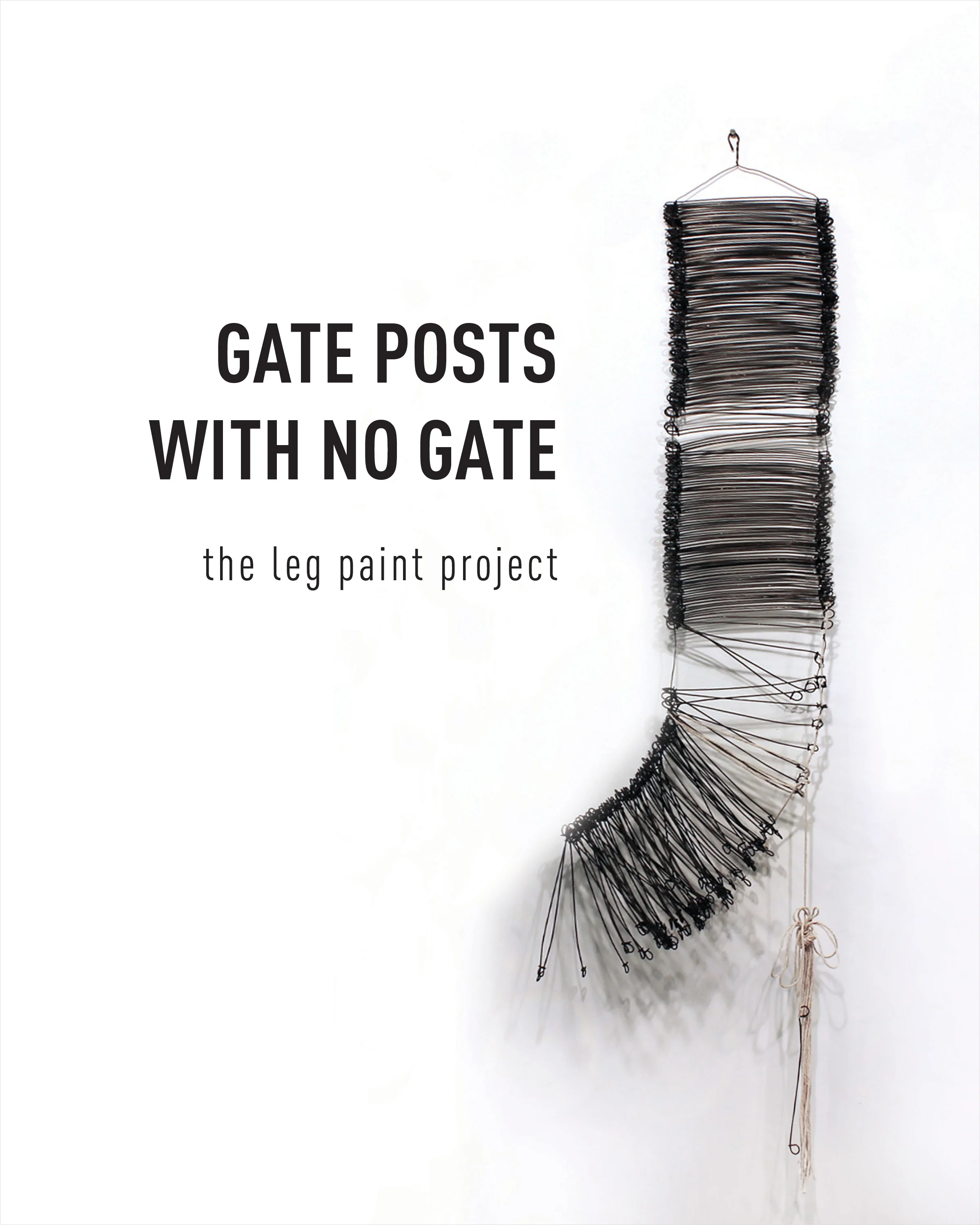Books
Read more about Waldor's collections of poetry below, as well as where to purchase each of them.
Gate Posts With No Gate
Gate Posts With No Gate: The Leg Paint Project is a collaboration between poet Peter Waldor and fourteen visual artists working in various mediums. The project began with Waldor's collection of poems establishing a simple premise: "notes to a painter for a series of paintings on the millipede's legs." After sharing the poems with the artists, leaving them to interpret them as they pleased, over 30 individual artworks were completed. They were then compiled into a book designed to showcase the works alongside the collection of poems that served as inspiration.
In one of the short poems Waldor says that “The paintings/will be stronger/without the poems/so forget they ever existed.” But he’s wrong, and that’s what the poem is about, being wrong. I have seen poems as illustrations or explanations or recreations but never anything just like this. Welcome to a thousand legs.
Gerald Stern, Winner of the National Book Award
State of the Union
An American moment as eavesdropped in diners, casino, and shady back rooms of New Jersey, with the despair and humor the Garden State deserves. Disparate styles told with a singularly strong and just cynical enough voice! I adored every one.
Matt Katz, Reporter, WNYC & NPR, author of American Governor: Chris Christie's Bridge to Redemption
Strange things happen when money, business and politics intersect in New Jersey. Waldor's brilliant send-up of the scene here should be read as a cautionary tale for people everywhere. It's the uncanny details that are the most chilling--a handcuff key jingling in a key chain, a governor eating a lozenge, an envelope sliding across a table. I couldn't put this book down.
Brendan Byrne, Former Governor of New Jersey
Who Touches Everything
True to its title, Peter Waldor's Who Touches Everything is a book of connections. From the click of an infant's lips to hermits living in adjacent caves, from "where a Mafioso/left those terrible/plastic bags . . ." to the first woman "to row the Atlantic," these spare and hard-edged poems are as rich in wisdom as they are in imagery. Who Touches Everything is a rewarding book.
The Unattended Harp
Peter Waldor is one of the most original voices in American poetry today. With subtle wit and a pitch perfect ear he celebrates all things great and small – be it a bolt hole on a bridge to the speed of light – with a transformative, often spiritual imagination. We are better off after reading him.
I love the poems in The Unattended Harp. The things (the people, the animals, the objects) seen, sometimes only for the moment, have finally found their form in this book. That's what happens in these poems: Everything seen in the enchantment of its actuality.
David Ferry, Winner of the National Book Award for Poetry
The Wilderness Poetry of Wu Xing
One is bound to ask who Wu Xing was and what were the particulars of his life. Was he a mountain sage hailing from a distant time and far off place? Was his teacher Do Sa the prophet of a lost religion? Across the centuries, only the poetry has survived. Even the name Wu Xing was probably not his real name but a pen name taken to better reflect the spirit of the poetry. The name translates to "nothingness." Nothingness here means its very opposite. Wu was so quiet, his mind so empty, that he could fill himself with these timeless lyrics. This is deep wilderness poetry, but it can be read or recited just as profoundly, whether you are caught in a big city traffic jam or are yourself, like Wu, finding your own trail far away from everyone else.
“Peter Waldor’s new book combines the unaffected, wise, intimate tone of the old Asian masters; sometimes joyful, sometimes heartbroken, often affectionate, with a tone of his own, a 21st century, ‘first world’ voice, more jaunty and optimistic-seeming, yet sometimes struggling for breath, for the ground under his feet: ‘… cups of thin air. / Knife edge. / Nothing on the sides. / Nothing in the past. / Nothing in the future.’ (‘Knife Edge Ridge’). Many sounds and textures of wonder and of nothingness are drawn here, to keep us warm and uninsistent company in our own wilderness.”
Jean Valentine, Winner of the National Book Award for Poetry
Door to a Noisy Room
Peter Waldor’s spare irony—sometimes tender, sometimes bawdy—deals in dichotomies: love and hate, frailty and strength, fear and faith. These elliptical and colloquial lyrics draw equally from parable, prayer, and elegy. Hesitating on the threshold between isolation and community, the poet focuses a distortingly accurate microscope on what matters in our lives.
Waldor’s deliberate, terse, sometimes wise debut shows how many emotions and situations can grow from one small set of stylistic tools. His short poems in slow, clear, clipped free-verse lines, all of which break on the phrase (“the masters failed/ to pass through/ the needles”), include lust, frustration, scenes from Jewish history, a lover’s generosity in bed, a worshipper’s ambivalence towards his God, and a son’s respect for his late father.
Publishers Weekly





